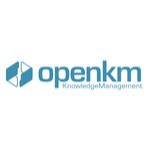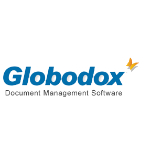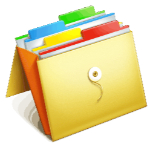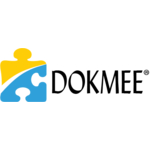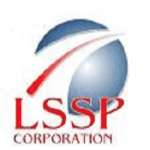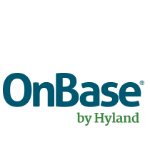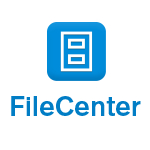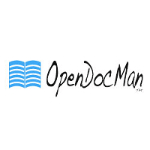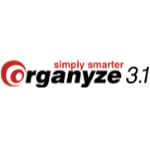TechnologyCounter provides genuine, unbiased real user reviews to help buyers make informed decisions. We may earn a referral fee when you purchase through our links, at no extra cost to you.
List of 15 Best File Management Software
Showing 1 - 15 of 35 productsOpenKM is a document management solution designed to streamline and optimize your organizations workflow. With its user-friendly interface features, OpenKM allows for efficient document storage, organization, and collaboration. Boost your teams produ...Read OpenKM Reviews
Globodox the document management software that simplifies your work by organizing and managing your documents seamlessly. With user-friendly features and customizable options, Globodox streamlines your document management process, boosting efficiency...Read Globodox Reviews
Zoho Docs offers an effective solution for storing, sharing, and safely managing files through the use of cloud technology. This document management software stores all file types in one centralized location, allowing for convenient access and easy...Read Zoho Docs Reviews
FOLDERIT is a solution for efficient document management. Designed to simplify the way you organize and access your files, FOLDERIT provides a user-friendly platform for all your document storage needs. With its intuitive interface, advanced features...Read FOLDERIT Reviews
Dokmee is a document management solution designed to streamline your entire organizational process. With its user-friendly interface features, Dokmee simplifies document organization, storage, and retrieval, making it the go-to choice for businesses...Read Dokmee Reviews
PinPoint is a software designed to revolutionize the way businesses track and organize their data. It offers a user-friendly interface and a wide range of advanced features, making it the go-to solution for businesses of all sizes. With PinPoint, str...Read PinPoint Reviews
Alfresco is a and versatile content management system that simplifies the management and collaboration of documents, workflows, and processes. With its user-friendly interface is a tools, Alfresco is the go-to solution for individuals and businesses...Read Alfresco Reviews
OnBase ECM is a software solution that enables organizations to efficiently manage and streamline their content, processes, and data. With a user-friendly interface features, OnBase ECM helps businesses achieve greater efficiency and productivity, ma...Read OnBase ECM Reviews
Are you tired of wasting time and resources organizing and managing your digital assets? Look no further than Canto Digital Asset Management is a all-in-one solution for organizing, storing, and sharing your digital files. With Canto, you can streaml...Read Canto Digital Asset Management Reviews
FileCenter is a is a document management software designed to streamline your workflow and organizing needs. With its user-friendly interface features, FileCenter allows you to easily store, organize, and access your files with ease. Say goodbye to c...Read FileCenter Reviews
Krystal DMS is a document management software that streamlines your document organization and helps you to efficiently manage your businesss important files. With Krystal DMS, you can easily store, retrieve, and share documents, making your workflow...Read Krystal DMS Reviews
OpenDocMan is a top-notch document management software designed to streamline and simplify the organization, storage, and retrieval of documents for businesses of all sizes. With its user-friendly interface features, OpenDocMan is the go-to solution...Read OpenDocMan Reviews
Organyze DMS is a perfect solution for all your document management needs. With its user-friendly interface features, Organyze DMS simplifies the process of storing, accessing, and sharing documents. Say goodbye to cluttered files and hello to a more...Read Organyze DMS Reviews
Document Locator is a software solution that streamlines document management processes for businesses of all sizes. With its user-friendly interface features, Document Locator simplifies file organization, retrieval, and collaboration, helping compan...Read Document Locator Reviews
PaperSave, your ultimate solution for simplifying document management. Say goodbye to endless paperwork and hello to seamless organization with our innovative software. Streamline your business processes and save valuable time and resources with Pape...Read PaperSave Reviews
- What Is File Management Software?
- Top Reasons Why Businesses Need File Management Software?
- What Are the Top Key Features of File Management Software?
- What Are the Top Benefits of File Management Software?
- What Are the Steps to Choose the Right File Management Software?
- What Are the Types of File Management Software for Different Industries?
- What Are the Technology Trends for Best File Management Software?
- What Are the Deployment Options for File Management Software?
What Is File Management Software?
File management software, alternatively referred to as document management software, is a type of software that facilitates the electronic storage, organization, and monitoring of files for enterprises. The software possesses the capability to effectively categorize and arrange a wide range of document formats, encompassing Word documents, spreadsheets, presentations, photos, PDFs, audio files, and video clips.
File management system is a valuable tool for enterprises since it facilitates the efficient storage, organization, and retrieval of information. Additionally, it offers the capability to regulate access privileges, ensuring that only authorized individuals may read and modify documents.
An organization has the capability to allocate a certain set of rights to a document or folder through the utilization of document management software. Administrators have the capability to impose limitations on access, either by confining it to specific persons or teams or by granting exclusive editing or viewing privileges to particular users.
Moreover, several software applications also generate digital records that provide the systematic monitoring of previous modifications made to a document, including the identification of the most recent editor. Another notable aspect of file archiving software is its capability to facilitate expedient document retrieval through the utilization of keywords or phrases.
In this manner, users are able to efficiently locate the necessary information and afterward allocate their efforts towards alternative tasks. Moreover, numerous software applications provide user-friendly features that facilitate collaboration among different individuals or teams working on a single document or a collection of documents.
The utilization of the best file management software is crucial for organizations seeking to efficiently and securely store and manage their papers. The software provides a multitude of advantages, encompassing the ability for administrators to establish access privileges and enabling users to efficiently conduct document searches.
By utilizing this technology, a business may effectively ensure the security of its documents and regulate access to pertinent information, so ensuring that authorized individuals are able to retrieve it as needed.
Top Reasons Why Businesses Need File Management Software?
1. Improved organization: File management software is a significant tool for businesses as it facilitates the systematic organization and convenient accessibility of their essential data. This software aids teams in swiftly locating files and effectively collaborating on projects, hence enhancing overall efficiency and productivity.
2. Increased security: File management software enables organizations to establish permissions that restrict access to files, granting exclusive viewing, editing, or deletion privileges to specific individuals, thus enhancing the overall level of security.
3. Better storage: The utilization of the best file management software enables businesses to securely store their information in cloud-based environments, thereby mitigating potential risks posed by malware and other forms of attacks.
4. Streamlined backup processes: The utilization of best file management software in company operations facilitates the establishment of automated backup systems, hence mitigating the risk of potential data loss during emergency situations.
5. Enhanced collaboration: Through the utilization of cloud storage and file-sharing functionalities, top file management software facilitates collaborative efforts within enterprises, enabling multiple individuals to work on a shared document or project while ensuring synchronization among all participants.
6. Automated processes: The integration of electronic file management systems with many operations, including invoicing, customer support, and inventory management, enables firms to optimize and consolidate multiple operational workflows.
7. Easy access: File management software is a valuable tool for enterprises as it facilitates the retrieval of data from many locations, hence allowing users to efficiently locate and submit the necessary information.
8. Lower costs: Businesses can achieve time and cost savings by using measures that reduce the prerequisites associated with managing physical paper documents.
9. Universal scalability: Organizations have the ability to utilize file management systems for the purpose of storing data and files of varying sizes, including those that require huge storage capacities.
10. Increased accuracy: The utilization of electronic file management systems can effectively mitigate errors in manually typed papers, hence enhancing the overall accuracy of the material.
11. On-the-go flexibility: The provision of remote access to files enables employees to maintain their productivity even when they are not physically present in the workplace.
12. Better search capabilities: The utilization of these software facilitates enhanced efficiency in information retrieval for enterprises.
13. Compatibility: It is capable of supporting a wide range of file formats, hence facilitating the seamless sharing of files among numerous users.
14. Automated version control: The utilization of version control enables firms to promptly revert to prior iterations of a document in the event of an unforeseen complication.
15. Report generation: File management solutions offer firms comprehensive reports on file and folder activity, enabling them to effectively monitor employee productivity and track project progress.
What Are the Top Key Features of File Management Software?
1. Search & File Retrieval: File management software provides users with an efficient method for promptly locating files that have been saved within the system. This task can be accomplished by utilizing a search function that facilitates the usage of keywords or phrases to retrieve targeted documents.
2. File Organization & Categorization: Computer file organization software offers a comprehensive framework for categorizing documents according to various factors such as kind, priority, or other relevant criteria. The system allows users to categorize and organize files in a systematic manner, facilitating efficient retrieval of files based on their assigned categories.
3. File Synchronization & Sharing: File management software provides users with the capability to synchronize information across many devices and securely share files with other users. The aforementioned attribute holds significant importance for distributed work teams that frequently require access to shared documents.
4. Versioning & Backup: The utilization of a file management system enables the retention of previous iterations of papers, alongside the provision of a comprehensive backup system for all saved documents. The implementation of robust security measures guarantees the protection of documents and facilitates their seamless retrieval in the event of inadvertent deletion.
5. Data Security & User Access: The best file management software enables administrators to implement varying degrees of access rights in order to secure distinct documents, thereby preventing unauthorized individuals from accessing the data.
6. Automation & Optimization: File archiving software offers automated functionalities that enhance the efficiency of document-related procedures. This encompasses the implementation of an automated system for categorizing papers, the provision of notifications for newly added documents, and further functionalities.
What Are the Top Benefits of File Management Software?
1. Increased Organization: File management software facilitates the optimization of filing and storage systems for users through the provision of tools that enable efficient organization of data. This feature facilitates expedient retrieval of information for users and enables more effective oversight of archived papers.
2. Enhanced Security: Electronic file management systems have the potential to facilitate the establishment of security standards and access restrictions, thereby restricting the ability of anyone to modify, access, or destroy crucial information.
Additionally, it has the capability to streamline backup and restoration procedures in order to mitigate the risk of data loss.
3. Reduced Storage Space: The utilization of this technology facilitates the reduction of physical storage space by enabling users to consolidate various files inside a singular location or extract them from cumbersome physical storage systems.
4. Improved Collaboration: The implementation of this technology enhances the efficiency of collaboration inside an organization by facilitating real-time file sharing across several users, enabling them to work collectively while maintaining distinct degrees of access.
5. Improved Tracking: The software possesses the capability to monitor and record user activity within the system, specifically pertaining to file access, editing, and movement. This functionality facilitates the maintenance of a comprehensive record of such activities.
6. Automation: The implementation of top file management software can significantly enhance efficiency by automating many manual filing operations.
7. Cost Savings: The utilization of the best file management software has the potential to mitigate expenses associated with data storage and management, as well as paper printing costs.
What Are the Steps to Choose the Right File Management Software?
1. Identify the purpose of the software: The evaluation of the file management software and storage is essential in order to ascertain the most suitable software solution for the organization's requirements.
2. Analyze the features: It is recommended to consider multiple characteristics that software may possess, encompassing its capacity for cloud storage, protocols for security, capabilities for secure file sharing, tools for collaboration, functionalities for automated backup, mechanisms for user access control, and potential for integration with pre-existing tools.
3. Research online reviews: Consult user reviews to gain insights into the software's performance as reported by individuals.
4. Contact the developer: I would like to inquire about the key attributes, usability, and budgetary considerations associated with the product.
5. Take advantage of free trials: Numerous software suppliers extend a complimentary trial period to allow users to acquaint themselves with the product's functionality prior to committing to a complete purchase.
6. Select the best file management solution: When making the final decision, it is important to take into consideration many factors such as the features, usability, cost, and reviews.
7. Software Implementation: Train the relevant personnel on how to use the software and make sure that it is used properly.
What Are the Types of File Management Software for Different Industries?
File management software for different industries varies greatly, but generally fall into three broad categories:
1. Office-Based File Management: Businesses commonly utilize file management systems to effectively manage and monitor crucial documents, including contracts, reports, and presentations. The platform offers a centralized repository for the storing and management of documents, accompanied by supplementary functionalities including version control, access rights, and tracking capabilities.
2. Project Management Software: This particular software is designed with the explicit purpose of assisting project teams in the planning and management of their workflow with maximum efficiency. The software may encompass several functionalities, including but not limited to automated task scheduling, collaborative tools, task and milestone tracking, resource management, and progress tracking.
3. Business Intelligence/Data Management Software: This program is specifically developed to assist businesses in extracting, assessing, and presenting data collected from various sources. The system may encompass functionalities such as data mining, predictive analytics, and dashboards, facilitating convenient retrieval of essential parameters.
What Are the Technology Trends for Best File Management Software?
The technology around file management software has undergone substantial advancements in recent years, which is evident in the prevailing trends within the field.
Some of the most prominent trends in file archiving software are as follows:
1. Cloud Storage: The utilization of cloud storage services has witnessed a significant surge in popularity as a means of managing files, enabling both individuals and companies to store extensive volumes of data without being constrained by local storage limitations. Cloud-based electronic file management systems solutions provide users with the capability to conveniently access their saved files from any device that is connected to the internet.
2. Automated Backups: The utilization of automated backup systems enables users to effectively safeguard their files, so ensuring their preservation and security, even in scenarios involving hardware malfunctions or inadvertent deletions. Automated backups serve the purpose of safeguarding critical files and data against potential loss or corruption.
3. File Versioning: The use of file versioning enables users to store and manage many iterations of particular files, facilitating convenient retrieval and comparison of distinct versions. This functionality aids in the identification of the most current and pertinent iteration.
4. Improved Security: The significance of implementing robust encryption measures for safeguarding stored files has grown considerably within the realm of computer file organization software, as individuals seek to ensure the security and confidentiality of their sensitive information. Enhanced security measures are implemented to safeguard user files against unauthorized access.
5. Intuitive User Interfaces: Numerous best file management software solutions already have user interfaces that are designed to be intuitive, so facilitating convenient access and efficient management of files for users across various levels of technical proficiency.
6. Collaboration Tools: Collaboration technologies have become indispensable for enterprises requiring efficient management and seamless sharing of files among diverse users and departments.
In general, the usability, security, and efficiency of top file management software are progressively improving, making it imperative for businesses and individuals who employ such software to remain abreast of these advancements.
What Are the Deployment Options for File Management Software?
